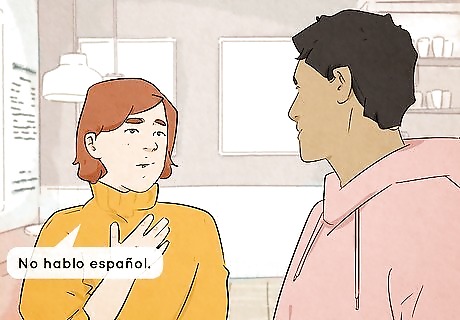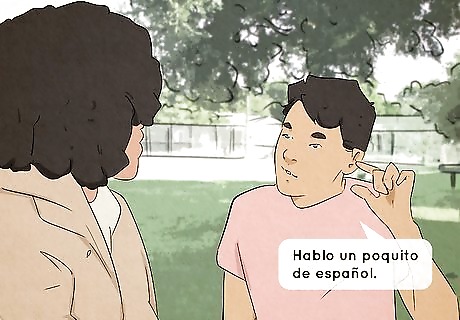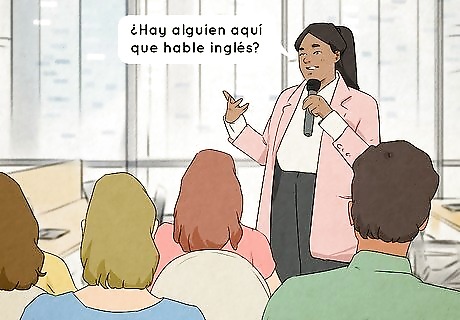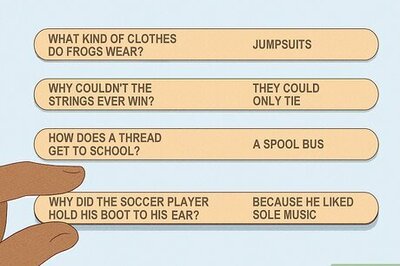
views
“No hablo español.”

This is the direct translation of “I don’t speak Spanish.” In many Spanish-speaking countries, if you tell someone in a touristy area that you don’t speak Spanish, they might immediately begin speaking to you in English. Keep this sentence in your back pocket—it’s likely to be pretty useful. Pronounce this sentence as: “no AB-low es-PAHN-yol” You can also add the Spanish word for “sorry,” “disculpe” (dees-COOL-pay), at the beginning or end of this sentence in order to sound more polite. Instead of “disculpe,” you can also use “lo siento” (lo SEE-ehn-to) or “perdón,” (per-DOAN) which also translate to “sorry.”
“Hablo un poquito de español.”

Say “I speak a little Spanish” if you know a few words. It’s worth letting someone know if you can understand a little bit of Spanish, since this can definitely help make communication easier. They may be able to speak slower or with a simpler vocabulary in order to communicate with you. Pronounce this sentence as: “AB-low oon po-KEY-to day es-PAHN-yol” If you feel a little more confident in your skills, say, “Hablo un poquito de español, ¿puedes hablar más despacio?” (AB-low oon po-KEY-to day es-PAHN-yol poo-EH-day AB-lar mas des-PAH-see-oh). This means, “I speak a little Spanish. Can you speak slower?”
“No entiendo.”

This phrase literally translates to “I don’t understand.” As a result, it’s a good way to let someone know that there’s a language barrier. If someone if trying to explain something to you in Spanish and you’re doing you’re best at keeping up, tell them this when things get a little too complicated. Pronounce this phrase as: “no en-tee-EN-do.”
“¿Puedes hablar en inglés?”

Use this question to ask, “Do you speak English?” Depending on what country or region you’re in, you may encounter many native Spanish speakers who have a good command of English as well. Ask this question to see if they’d be willing to switch to English. Pronounce this question as: “poo-EH-dess AB-lahr en eeng-LAYS” If you’re speaking with someone older than you or someone in a position of authority, try using the formal variation of this question instead: “¿Puede hablar en inglés?” (“poo-EH-day AB-lahr en eeng-LAYS.”) It’s a bit more polite to introduce this question by first explaining you don’t speak Spanish. For example: “Disculpe, no hablo español. ¿Puedes hablar en inglés?”
“¿Hay alguien aquí que hable inglés?”

This question means, “Is there someone here who speaks English?” If you need help with something and don’t feel confident that your Spanish skills are up to the task, ask this question. The person you’re speaking with may have someone in mind who can help you. Pronounce this question as: “AY al-GOO-een ah-KEY kay AB-leh eeng-LAYS”
“¿Podemos usar el traductor del móvil?”

This question means, “Can we use a smartphone translator?” With modern technology, it’s much easier to communicate with people who don’t share the same language as you. Pull up Google Translate or another smartphone translator, and ask the person you’re speaking with if they’d be willing to talk to you through the device. Pronounce this question as: “po-DAY-mos OOS-ar el tra-DOOK-tor del MO-veel”


















Comments
0 comment